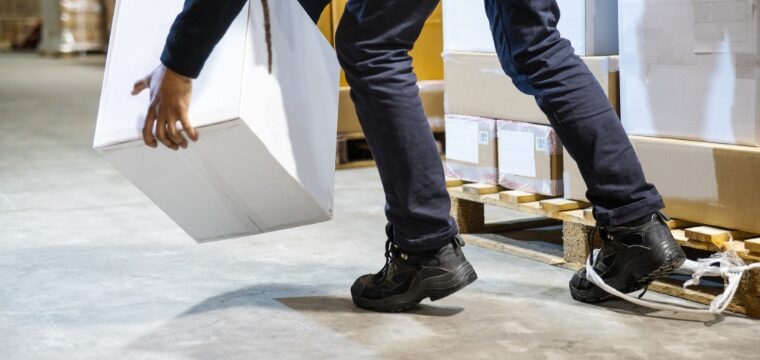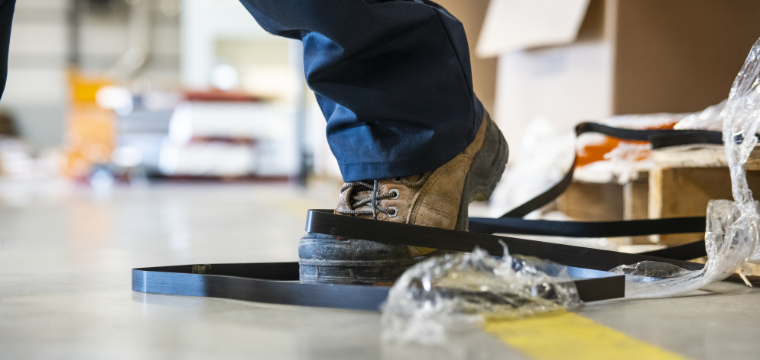Workplace injury is a two-way street — there is an expectation that employees and employers will practice a certain level of care in day-to-day processes to avoid accidents. However, all of the cases we handle at Casey, Devoti & Brockland involve employer liability. To have a viable workers’ compensation lawsuit, you need to prove that your employer is liable under the conditions in which the injury happened.
Employer Liability for Workplace Injury
Under Missouri law, an employer’s responsibility to workplace safety involves creating a safe workspace. They must ensure that their workplace is free of dangerous conditions that may cause workplace injury and provide proper safety gear for their employees. While the specifics depend on the industry, appropriate equipment may include helmets, goggles or eye-wash stations. If they fail to provide suitable working conditions, an accident may occur and make them vulnerable to legal action.
When an accident occurs, the employer must report an accident to the Division of Workers’ Compensation at the Missouri Department of Labor. Employers must fill out and file the Report of Injury form within 30 days of their knowledge of the accident. However, there is a catch. In Missouri, an injured worker has two years from the date of the accident to take legal action against their workplace. If the employer fails to file within the intended period, the statute of limitations extends by an entire year.
Failure to file may damage employers in a workers’ compensation case. The attorneys at Casey, Devoti & Brockland have extended the statute more than a handful of times because an employer failed to file in a timely manner. Employers must also report all injuries to their workers’ compensation insurance carrier or Third Party Administrator within five days of the date of the workplace injury or within five days of the date on which the workplace injury was reported to the employer by the employee — whichever is later.
Your Responsibility in the Workplace
Employees, on the other hand, are required to take care in the workplace. This means you must use equipment as instructed, utilizing safety equipment at your disposal and remaining substance-free while on the job. After an accident, you have two years to pursue legal action — to prove employer liability, you must prove two things:
- An accident occured. Put simply, Missouri law defines an accident as an unexpected traumatic event or unusual strain caused by a specific event during a single work shift. An accident may also be an injury to a body part resulting from repeated and repetitive activity over an extended period of time. As the one who suffered the accident, you must prove that the workplace injury occurred.
- Employment. The victim must prove that the injury occurred during the course of their employment — the accident must occur at or during work to be eligible for legal compensation.
Concerns for COVID-19
Some may wonder — could I have a viable workers’ compensation case related to COVID-19? Early in the pandemic, Casey, Devoti & Brockland received a couple of inquiries about workers’ compensation related to complications with the virus. However, this is a nearly impossible area to pursue a case in, considering that two competing statutes have passed the Missouri General Assembly.
Originally, Missouri made respiratory illness in first responders a viable workers’ compensation case. On the flip side, state legislators enacted a recent statute making injuries from COVID-19 exposure no longer viable for a workplace injury lawsuit in certain circumstances.
Practical problems also exist. While an employee is owed medical care to treat illness resulting from workplace exposure, it may be complicated to prove that the exposure happened at work versus some other activity you engaged in while off the clock. We advise that you consult with an attorney before you seek to hold an employer liable for COVID-19-related illness.
Take Legal Action
We often see injuries from construction-related fields such as carpentry, pipefitting and roofing. Another typical setting is factory work — repetitive motion injuries often result for assembly line workers, administrative assistants and factory workers.
If you have received a workplace injury, we recommend that you:
- Report your injury by immediately reaching out to your employer or the human resources department.
- Demand medical treatment from an appropriate provider, such as the emergency room, a neurologist or an orthopedic surgeon.
- Make notes in a journal identifying your injuries — what body part is injured, how you feel and when you experience your symptoms.
- Report the resulting symptoms to your medical provider.
- Ultimately, contact a lawyer, if for no other reason than to understand your rights moving forward.
To learn more about your workplace injury case, visit Casey, Devoti & Brockland’s workers’ compensation blog.









